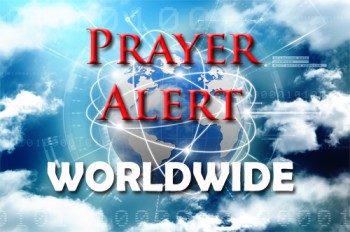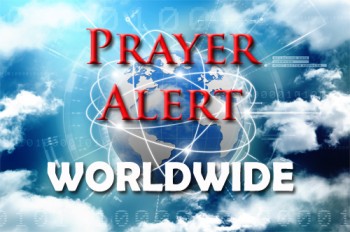Displaying items by tag: reaching the unreached
Burkina Faso: terrorists and mission
Shopkeepers near the Togolese border were returning from a day at the market when terrorists attacked, killing more than twenty people. It is a disturbing trend. Terrorists have killed more than 5,000 people so far this year. Helen Williams of World Missionary Press (WMP) says local ministries are being cautious. ‘As far as we know and from everything I’ve heard, the ministry work continues. It may have restrictions and be a little bit more difficult, but the work goes on. WMP recently sent Scripture booklets to a ministry that goes into villages. I don’t know if that’s been restricted – going into different places. But we sent them a shipment of material in French and had reports and photos from them going home-to-home, having open-air campaigns and planting churches in one particular village. Eight million people who speak the Moore language they have just received their first shipment of that language. They are overjoyed.’
Israel: reaching unreached people
The Chosen People and the Promised Land of scripture are testaments to God's promises. Despite limited natural resources, Israelis have developed thriving agricultural and industrial sectors in under twenty years. Home to Christian, Muslim, and Jewish sites, Jerusalem has been conquered and reconquered for 3,000 years. The Old City reflects ancient rifts between Palestinian and Jewish communities. Freedom of religion is a right, but Messianic Jews struggle for political recognition. Christians are often harassed by Jews and Muslims alike. 75% of Israel follow Judaism, barely 2% Christianity, and the rest Islam. However, the gospel is spreading, interest in the Word of God is increasing; and powerful testimonies by Christian Jews abound as they minister to their brothers and sisters in ways that others cannot. House churches grow as God empowers evangelical leaders to spread the good news that ‘the Messiah has come and is coming back soon’.
Chad: Bibles reaching the unreached
On 30 December, a Migaama New Testament was launched. A Christian said, ‘This translated word has above all given a freedom to put into practice the word of God at any time. It has broken certain traditions - grudges, difficulties with forgiveness, and reconciliation. It has given us strength to resist in difficulties. It has transformed this resentful people to become Christian people full of love. Finally, this word has become a shield for the Christian Migaami people. They continually make use of this shield to face up to difficulties.’ The leader of the Migaami said, ‘The word of God translated into our language can change lives.’
Pioneering Bible translation
Roughly half of the world’s known languages are still without God’s Word. Bible Translation Acceleration Kits, or BTAKs, are helping believers in hard-to-reach areas translate God’s Word. Wycliffe’s CEO says, ‘We receive great expressions of thanksgiving from those who are making use of them. One of the pastors we trained in Zambia taught three other language groups how to do Bible translation. Those groups completed their New Testaments and have already started working on OT translations.’ Most translators live in isolated regions with no Internet. BTAK has built-in internet connection and provides access to all the Bible translation software a language group needs.
Reaching the unreached
The Ceesa people have a unique desert culture and their own distinct language. There is evidence that they were Christians once, but they are now Sunni Muslims. As far as anyone knows, there has not been a single Ceesa Jesus follower in seven hundred years. Mohammed, a Ceesa farmer, saw a man picking and eating olives from a tree near his house. Rather than chase the stranger away, he introduced himself and welcomed him into his home for some delicious dates. The man, Ali, was a Christian who had come to Ceesa to share the good news. As he ate he began telling his host about Isa. When Mohammed heard the name, his eyes got big. He said, ‘I have seen Isa in my dreams! I want to know more about him!’ Ali continued to explain the good news, soon Mohammed gave his life to Jesus, and a church was planted.




